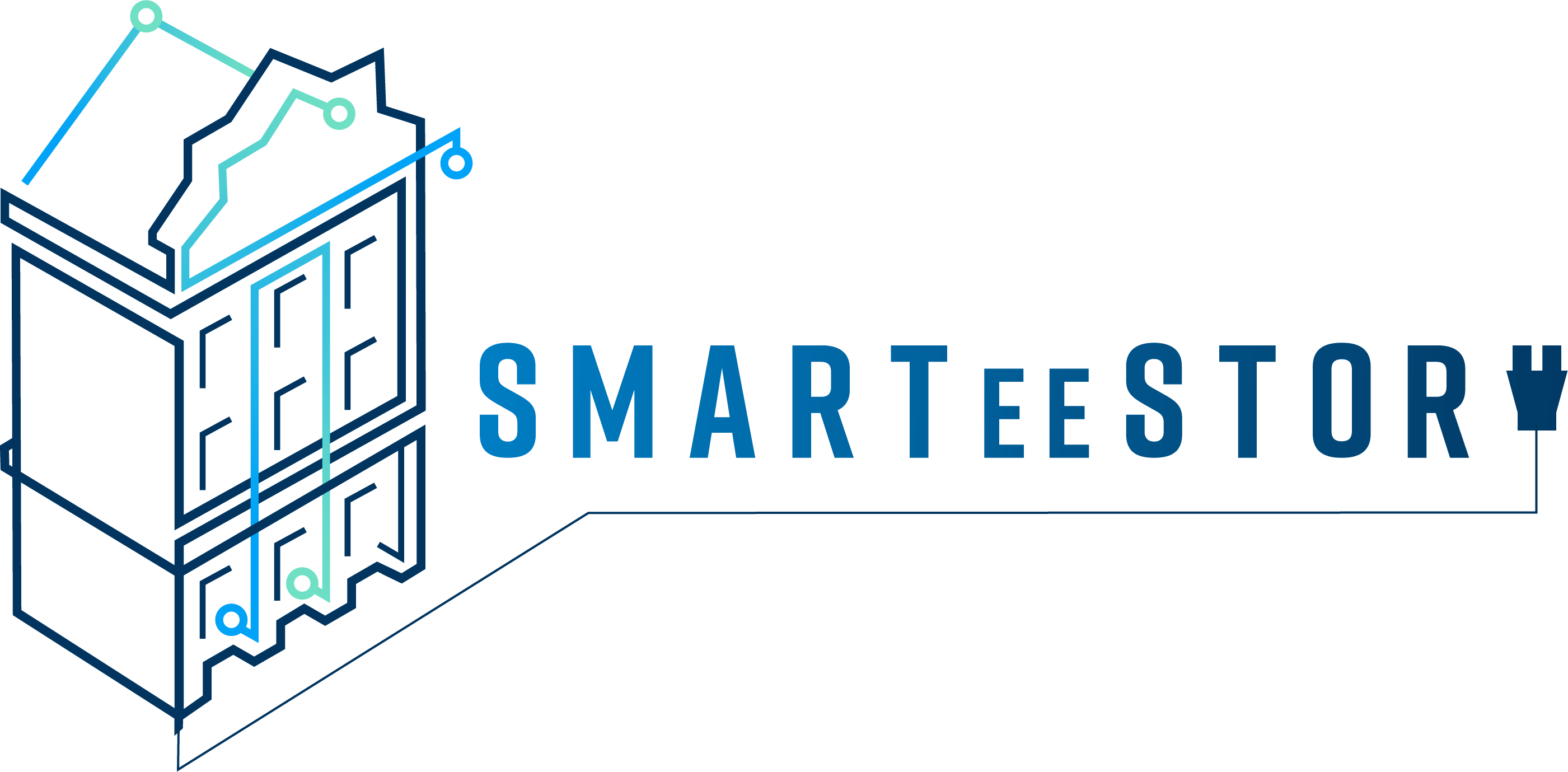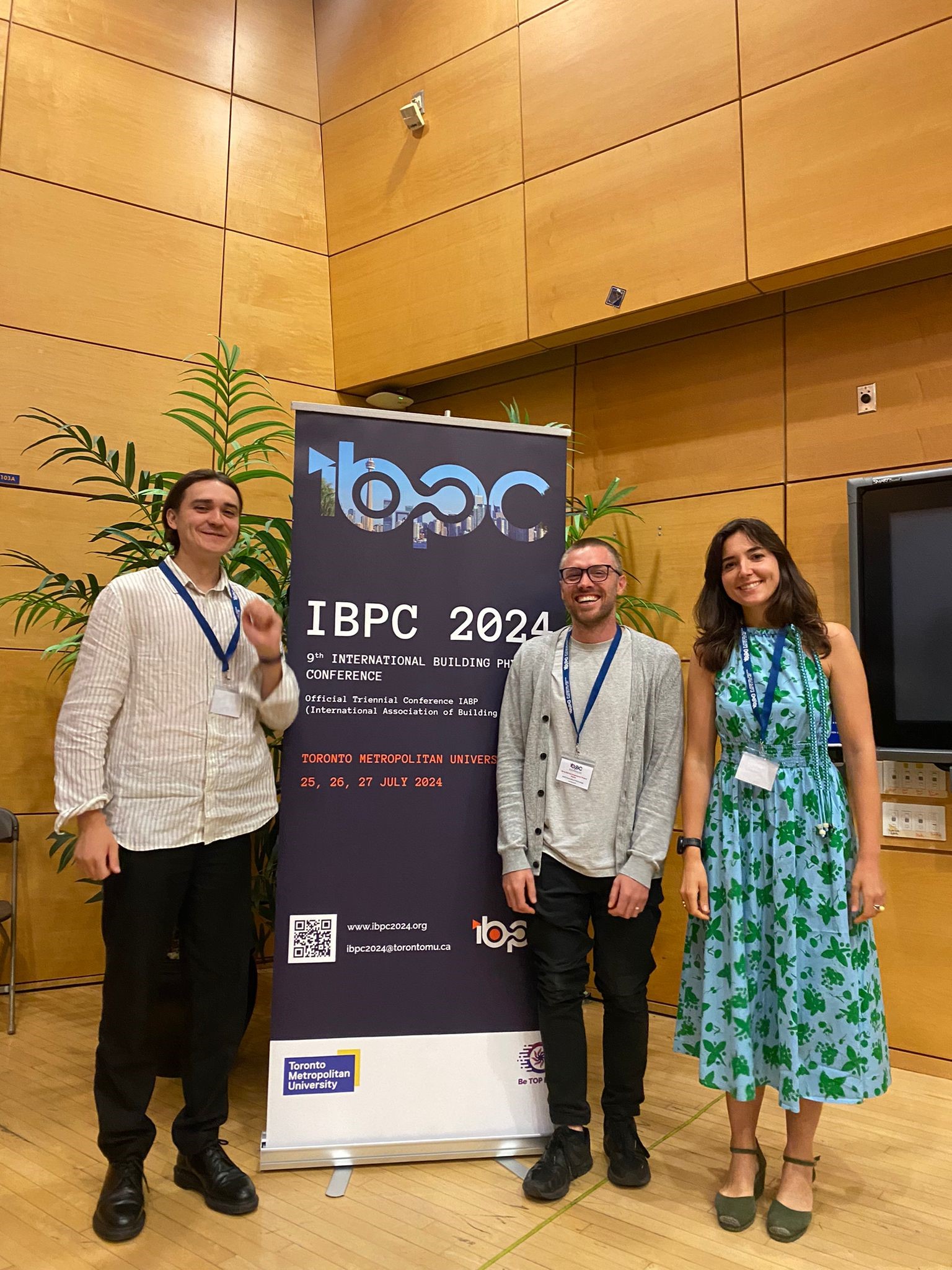On 25-27 July 2024, Alessandra Luna-Navarro, Pedro de la Barra, and Pablo Martinez Alcaraz, from the Technical university of Delft (TU Delft) presented SMARTeeSTORY findings at the International Building Physics Conference (IBPC) 2024.
Hosted at Toronto Metropolitan University, the IBPC conference brought together researchers, practitioners, educators, and students from the building science and physics sectors worldwide.
Showcasing Results Advancing Smart Building Technologies and Energy Efficiency
Alessandra Luna-Navarro showcased their work “Impact of dynamic facades on smart readiness indicator and user satisfaction”. Alongside SMARTeeSTORY coordinator RINA, TU Delft researchers presented the role of dynamic façades in enhancing user satisfaction, their second contribution on the topic. Dynamic façades, equipped with smart-ready services such as dynamic shading devices and smart controls for windows, lights, or heating, aim to boost energy efficiency. The Smart Readiness Indicator (SRI), introduced by the European Union in 2018, measures a building’s ability to support these smart services to improve energy efficiency, meet occupant needs, and respond to grid signals. The TU Delft and RINA team used the SMARTeeSTORY demosite in Delft, Netherlands, as a case study to analyse how smart technologies can enhance energy efficiency, energy flexibility, and user comfort.
Pablo Martinez Alcaraz presented his work "Personalized Building Controls based on Individual Thermal Preferences for Energy Efficiency and Thermal Comfort". This study, conducted with colleagues from the TU Delft and the University of California Berkeley focuses on identifying occupants' thermal preferences in shared spaces and developing Bayesian thermal comfort models to create occupant-centric control logic that optimizes personalized comfort and assesses energy performance.
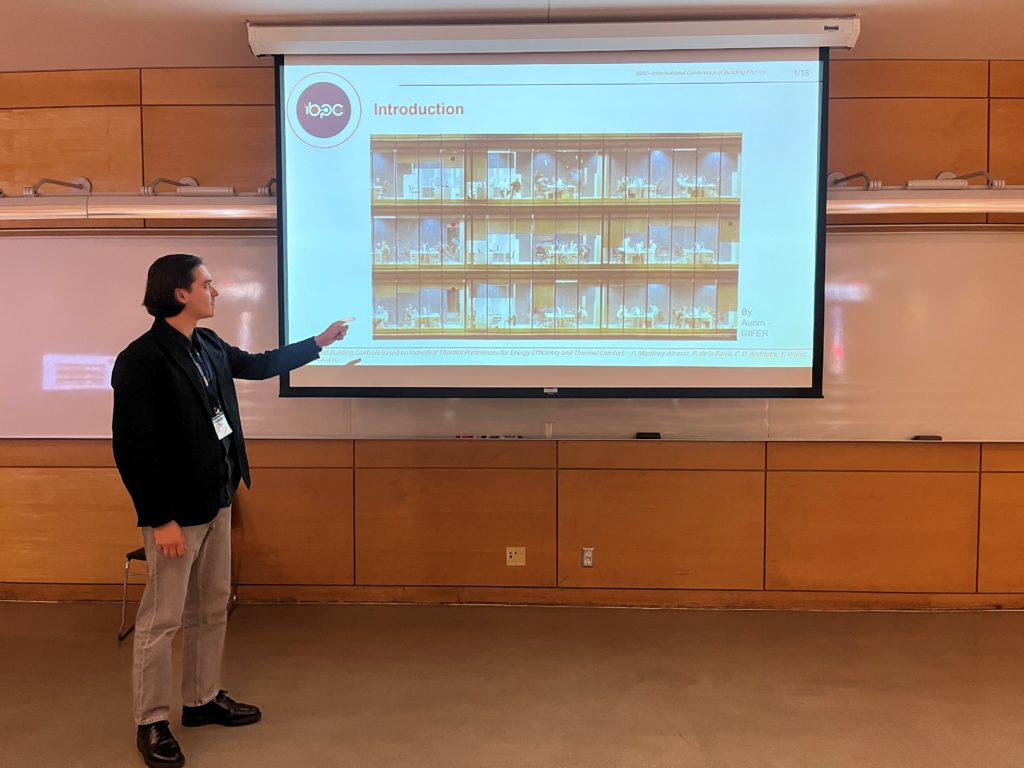
Pedro de la Barra presented their work on “Identification of interaction strategies by clustering occupants in buildings.” TU Delft researchers developed a framework to identify causes of (dis)satisfaction with Indoor Environmental Quality (IEQ) conditions and personal and automated control strategies implemented in the Demo sites of Delft and Riga. Assessing those satisfaction items is key for the implementation of the SMARTeeSTORY strategy.
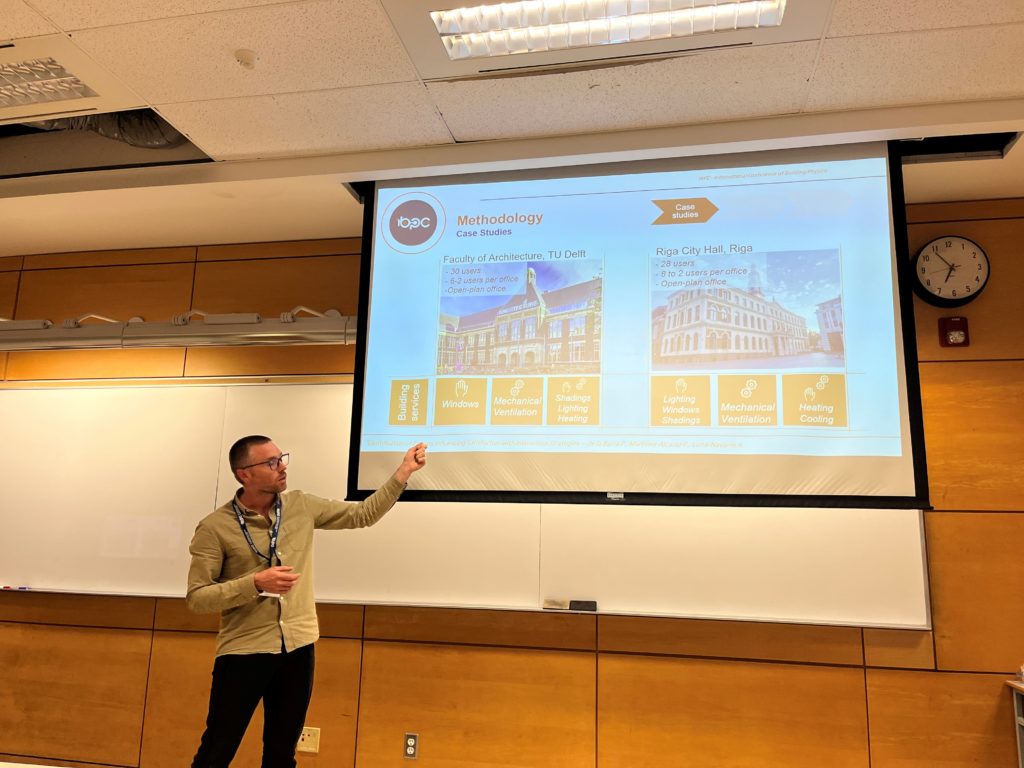
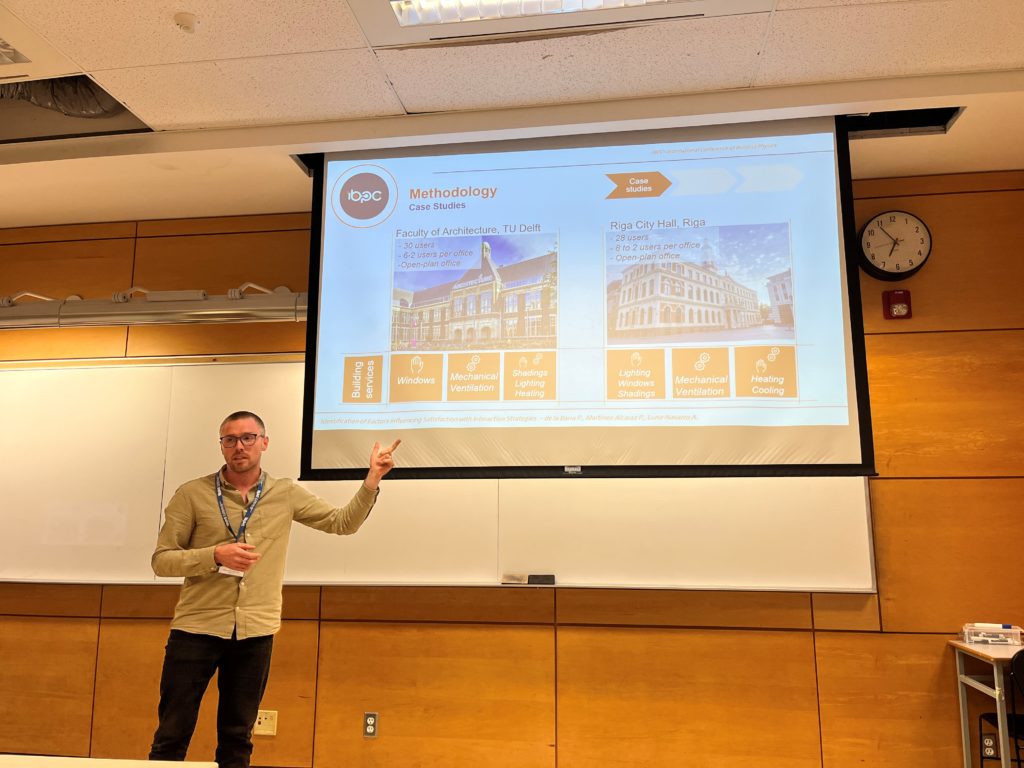
Pedro de la Barra, TU Delft, at the IBPC 2024 conference
The proceedings from IBPC 2024 will be published soon, providing detailed insights into the SMARTeeSTORY's contributions. The participation of our project partners in such an international conference underscores the project's commitment to advancing smart building technologies and energy efficiency, contributing valuable knowledge to the global community.

